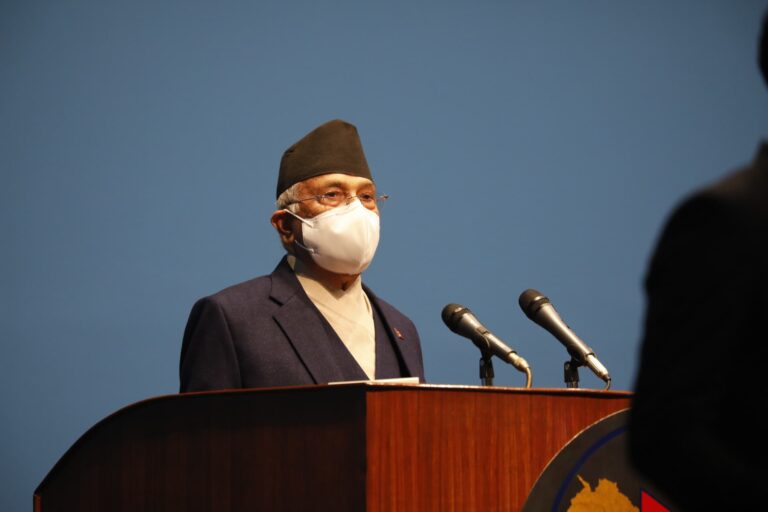
Prime Minister KP Sharma Oli has lost the vote of confidence in the parliament. Oli’s motion of no-confidence was rejected by majority lawmakers at a special session of the House of Representatives held today.
With this, Oli should be legally and automatically relieved from his post as per the constitution.
According to House Speaker Agni Prasad Sapkota, 232 MPs participated in the voting.
As many as 93 lawmakers voted in favor of Oli’s proposal while 124 lawmakers from the main opposition parties Nepali Congress, CPN- Maoist Center and Upendra Yadav-Baburam Bhattarai faction of the Janata Samajbadi Party Nepal voted against the vote of confidence.
The Speaker informed that 15 votes were cast as neutral.
As many as 27 MPs of UML’s Jhala Nath Khanal-Madhav Kumar Nepal faction did not attend today’s parliamentary session.
Rule 152 of the Rules of Procedure of the House of Representatives talks about the process to carry out the voting, how to fix the date and time for the voting, and how to divide the votes.
Sub-rule 8 of the regulation states, “If the Prime Minister fails to get a vote of confidence, the Speaker shall inform the President about the same.”
The President will then have to use Article 76 of the Constitution, which requires the ‘formation of the Council of Ministers’ and was the most debated as well as discussed article at the Supreme Court’s Constitutional Bench during hearing of the dissolution of House of Representatives last December.
After Prime Minister Oli submits his resignation, the current government will become a caretaker government until another prime minister is appointed.
Article 76 (2) of the Constitution provides that the President shall then appoint a member of the House of Representatives who can obtain a majority in support of two or more parties represented in the House of Representatives as the new prime minister.
If the House fails to form a government as per Article 76 (2) or a prime minister appointed under this provision fails to win the vote of confidence within 30 days from appointment, the President shall invoke Article 76 (3).
Political observers say that Oli could take the route of Article 76 (3) which states that if a prime minister cannot be appointed under Clause (2) or the newly appointed prime minister fails to secure a vote of confidence within 30 days from the date of appointment, the President shall appoint the leader of the largest parliamentary party – CPN-UML at present – in the House of Representatives as the next Prime Minister.
The decision of the Constitutional Court of the Supreme Court on February 23, however, had specifically stated that the leader of the largest parliamentary party in the House of Representatives can be elected Prime Minister only if two or more parties fail to form a majority government.
The next meeting of the House has been scheduled for Thursday.





